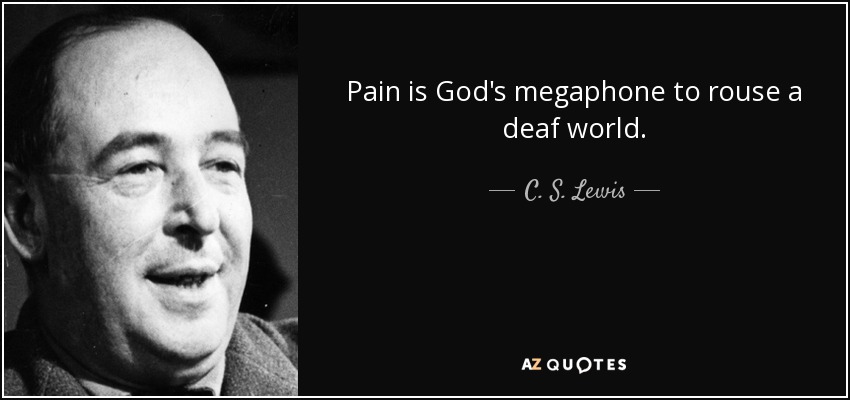Reflections on the GOSPEL. Creation, fall, redemption, restoration /consummation /recreation. Inclusive and exclusive. Tabernacle and presence.
Loved by God.

- UBF Gospel Musings
- Chicago, IL, United States
- * It's good to suffer loss, for it draws me to the Cross where God's loss is more than what anyone ever lost. * We cannot hear what the stories of the Bible are saying until we hear them as stories about ourselves. * Let go of control. * Trust God. Thank God. Think about God. Talk to God. Talk about God.
Monday, November 29, 2021
Thursday, November 18, 2021
Pains and Contradictions (Jean-PIerre de Caussade)
Labels:
contradiction,
pain
Misery--a Cost of Being Chosen (Jean-Pierre de Caussade)
Sunday, November 7, 2021
Chiasm of Matthew 6:24
- A. No one can serve two masters.
- B. Either you will hate the one
- C. and love the other,
- C'. or you will be devoted to the one
- B'. and despise the other.
- A'. You cannot serve both God and money.

A chiasm is like a sandwich with the bread on the outside, the lettuce and pickles next and the patty (chicken, beef, fish) in the center.
What is the chiasm structure saying?
- C/C' the center essentially asks, "Who/what do you love and are devoted to?"
- A/A' on the outside makes a statement of truth.
- B/B' is the contrast of C/C'.
Chiastic structures are the "hidden" beauty of Hebrew narrative and poetry.
Wednesday, November 3, 2021
Imperatives, Indicatives and Ironies in Exodus 1-2
- The more Pharaoh tried to reduce the number of Israelites (Exo 1:9-11, 13-14), the more they increased in number (Exo 1:12, 7).
- Pharaoh wanted to drown the Hebrew males (Exo 1:22) but he and his army were drowned (Exo 14:28).
- Pharaoh feared the Hebrew men (Exo 1:16, 22) but it was the women who thwarted him (Exo 1:15; 2:1,4,9-10).
- Pharaoh tried to destroy Hebrew men, but he fully educated, trained, equipped and raised 1 Hebrew man Moses in his very own palace, who later delivered all the Hebrew slaves.
- It was as though Moses belonged nowhere in this world. “Moses named him Gershom, saying, 'I have become a foreigner in a foreign land'” (Exo 2:22b). Moses was never at home anywhere...
- ...not with his family and his own people though he was born a Hebrew.
- ...not as an Egyptian, though he grew up in an Egyptian palace.
- ...not with his Midianite family in the wilderness.
- ...not in the promised land, for he wasn't allowed entrance.
- The Creator is not accepted or received by his creation. "He was in the world, and though the world was made through him, the world did not recognize him. He came to that which was his own, but his own did not receive him" (Jn 1:10-11).
- Jesus' birth. He was born in a manger, while Caesar ruled the entire Roman world (Lk 2:1,7). Yet Jesus is the King of kings and Lord of lords (1 Tim 6:15; Rev 17:14; 19:16).
- Jesus' death. "You do not realize that it is better for you that one man die for the people than that the whole nation perish" (Jn 11:50; 2 Cor 5:21).
- "Again I tell you, it is easier for a camel to go through the eye of a needle than for someone who is rich to enter the kingdom of God" (Mt 19:24).
IMPERATIVES and INDICATIVES [Imperatives (commands) = what you should do {Law}. Indicatives = what God has done {Grace}. Christendom and evangelicalism often do not clearly distinguish Law / Grace, and misunderstands or confuses imperatives / indicatives, which confuses the church.]
- You don't repent and obey (and believe) [imperative] to be saved, but because you are saved (by grace) [indicative] you repent and obey [and believe] (Mk 1:15).
- The imperatives are based on the indicatives and the order is not reversible. [Law is based on Grace.]
- "I am the Lord your God, who brought you out of Egypt, out of the land of slavery [indicative]. You shall have no other gods before me [imperative]" (Exo 20:2-3; Dt 5:6-7).
- "For God so loved the world [indicative] that he gave his one and only Son [indicative], that whoever believes in him [imperative] shall not perish but have eternal life" (Jn 3:16).
- "The time has come," he said, "The kingdom of God has come near [indicative]. Repent and believe the good news [imperative]!" (Mk 1:15).
- "We love [imperative] because he first loved us [indicative]" (1 Jn 4:19).
- "...work out your salvation with fear and trembling [imperative], for it is God who works in you to will and to act according to his good purpose [indicative]" (Phil 2:12-13).
- "...he saved us [indicative], not because of righteous things we had done [imperative], but because of his mercy [indicative]..." (Tit 3:5).
- For in the gospel the righteousness of God is revealed—a righteousness that is by faith from first to last, just as it is written: “The righteous will live by faith.” (Rom 1:17, NIV)
- For the righteousness of God is revealed in the gospel from faith to faith, just as it is written, "The righteous by faith will live." (Rom 1:17, NET)
Labels:
Exodus,
love,
obedience,
repentance,
timkeller
Subscribe to:
Posts (Atom)







